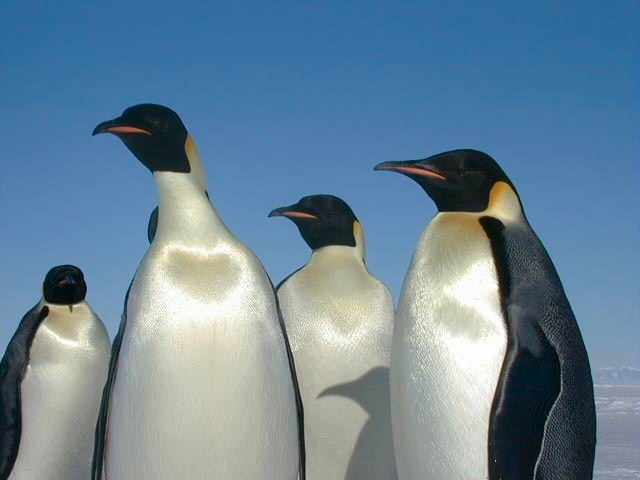Science News Roundup: Scientists uncover history of 'ridiculously charming' penguins; High blood thickness ups death risk; few problems with flu-COVID shots together and more
Researchers on Tuesday offered the most thorough examination to date of the history of penguins dating back to their origins more than 60 million years ago, including identifying a suite of genes crucial in adaptations related to underwater vision, long dives, body temperature regulation, diet and body size. High blood thickness ups death risk; few problems with flu-COVID shots together The following is a summary of some recent studies on COVID-19.

Following is a summary of current science news briefs.
Scientists uncover history of 'ridiculously charming' penguins
The evolution of penguins from their flying seabird ancestors into the flightless denizens of marine environments from frigid Antarctica to the tropical Galapagos Islands is among the wonders of the animal kingdom. Researchers on Tuesday offered the most thorough examination to date of the history of penguins dating back to their origins more than 60 million years ago, including identifying a suite of genes crucial in adaptations related to underwater vision, long dives, body temperature regulation, diet, and body size.
High blood thickness ups death risk; few problems with flu-COVID shots together
The following is a summary of some recent studies on COVID-19. They include research that warrants further study to corroborate the findings and that has yet to be certified by peer review. Blood thickness linked with death risk in severe COVID-19
Scientists find an exotic black hole deemed a 'needle in a haystack'
Astronomers have spotted in a galaxy adjacent to our Milky Way what they are calling a cosmic "needle in a haystack" - a black hole that not only is classified as dormant but appears to have been born without the explosion of a dying star.
Researchers said on Monday this one differs from all other known black holes in that it is "X-ray quiet" - not emitting powerful X-ray radiation indicative of gobbling up nearby material with its strong gravitational pull - and that it was not born in a stellar blast called a supernova.
Northrop wins Space Development Agency's contract to build 14 satellite
Defense contractor Northrop Grumman Corp said on Monday it had won a contract to build and deploy a low-Earth orbit constellation of 14 satellites for the U.S. Space Development Agency. The satellites are part of the agency's plan to build the Tranche 1 Tracking Layer for detecting, identifying and tracking hypersonic weapons and other advanced missiles from their earliest stages of launch through interception.
- READ MORE ON:
- Milky Way
- Antarctica
- Defense










